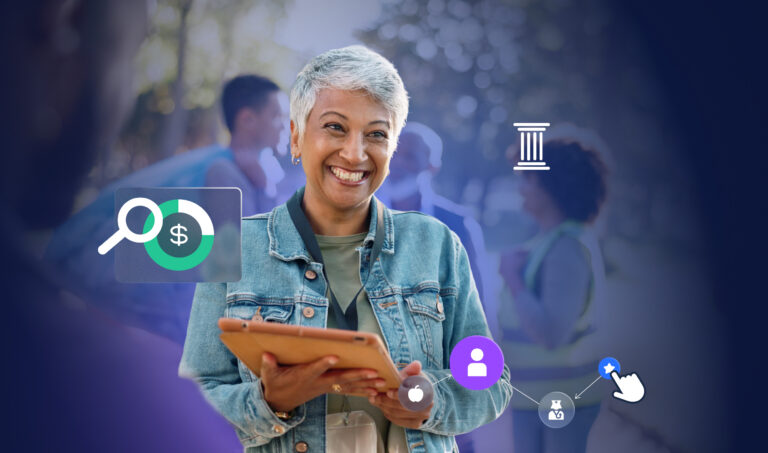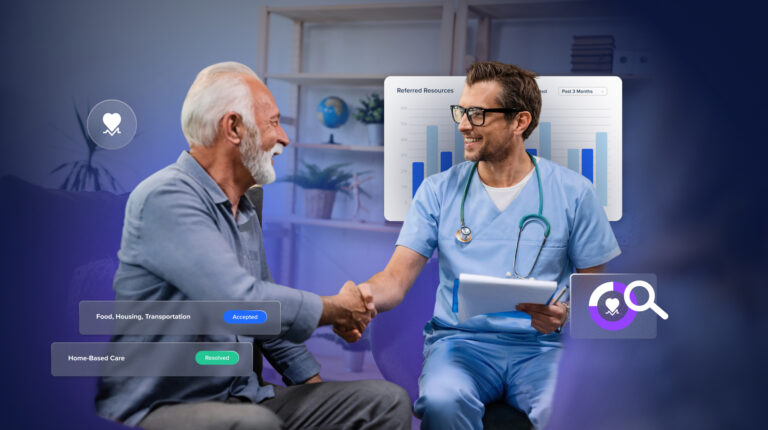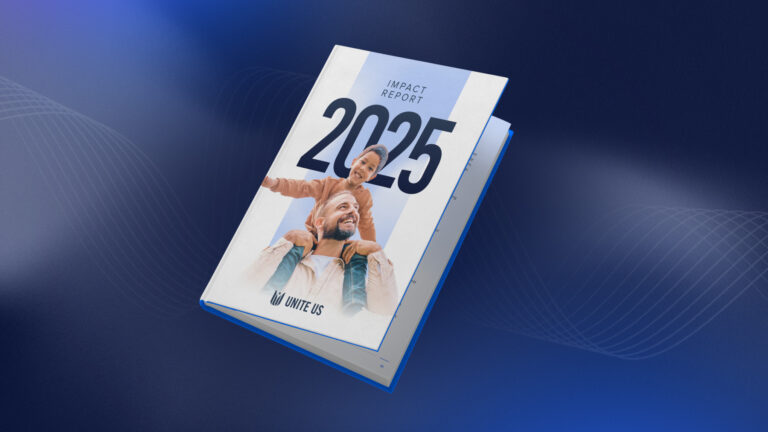
The Perfect Fit: A Veteran Who Found Her Place in the Civilian Workforce
On November 11, the nation comes together to remember and honor the service and sacrifices of our veterans. Veterans Day fills me with pride and humility as a U.S. Army Veteran with two combat tours and 20 years of active service. It’s a day I reflect on the many sacrifices I made, spending time away from my family and friends, to uphold an oath that I am happy to say I fulfilled.
I was 19 years old when I deployed to Afghanistan for my first combat tour. It was unlike anything I ever experienced—from going on convoy missions to being mortared on our fobs. Experiencing war up close and personal takes a toll on your mental health. In the early 2000s, mental health wasn’t widely discussed like it is today. In the Army, we had mandatory training on suicide prevention and behavioral health facilities, but there was an unspoken rule that, as a leader, seeking these resources could have a negative impact on your career. So, like many of my battle buddies back then, I sucked it up and drove on. As the military culture started to shift and more leaders spoke out about addressing mental health, it gave me the courage I needed to address my own anxiety and seek professional help, which helped me become more effective at my job and as a leader.
Like many veterans, as my time ended with the Army, I started to think about life after the military. Where would I go? What would I do? How would my skill set translate to the corporate or private sector? What company could understand my military background and experience?
Then I came across Unite Us, a technology company that connected health and social care. After reading more about the company, I learned that the founders were also veterans. Was this destiny? A company whose values aligned with mine, who understood my skill set, and understood my background from the past 20 years of Army experience. I applied, and after a thorough interview process, I was offered the position of Communications Manager. I couldn’t have selected a better organization to join in my next chapter. Unite Us’ mission to advance health equity gave me purpose once again.
During my time here, I have seen Unite Us’ commitment to connecting veterans to health and social care firsthand, especially behavioral health services. In September 2022, Unite Us was selected among the top 30 finalists in Mission Daybreak, a U.S. Department of Veterans Affairs grand challenge and call on innovators to develop suicide prevention solutions that meet the diverse needs of veterans. We are honored to join the innovation efforts to reduce barriers for veterans to access care.
How SDoH Tech Supports Veterans Through Whole-Person Care
Unite Us’ technology makes it easier for veterans to receive support before a mental health crisis occurs. Our solution, Saving Veteran Lives Through Empowered Community Networks, is designed to reduce veteran suicides by identifying the social care needs of veterans who present risk factors for suicide, enrolling those veterans in services, and ensuring those veterans receive services that meet their social care needs.
A holistic approach to mental health requires the ability to address both medical and social needs, and to integrate services that address a range of co-occurring needs. Data from our networks shows that the top three co-occurring needs for military members and veterans seeking mental and behavioral health services between 2017 and 2022 were 1) Housing; 2) Benefits Navigation; and 3) Employment.
Addressing these needs takes an integrated, well-resourced team of collaborators. One of our partners, Cristina Garcia, Director of VPAN Los Angeles at Southern California Grantmakers, shared, “Unite Us has helped connect a disconnected society. Almost 60 veteran organization partners in LA County means that together we are accomplishing more, decreasing veteran issues that were once difficult to overcome. Unite Us is helping VPAN achieve our mission by bringing a coordinated network that provides us not only a platform but a new method of access to care for our veterans and families in LA County.”
Because network partners on the Unite Us Platform can securely screen for and easily coordinate care for additional and recurring services, the client never has to tell their story more than once. This results in significant efficiency improvements. In Georgia, Unite Us’ partnership with the Veterans Education Career Transition Resource (VECTR) helped drive a 300-percent reduction in the time it takes receiving organizations to close the case. We observe consistent results in serving our veteran population across the nation, with time to case closure more than halved on average from 2020 to 2022 in our networks.
Supporting Veterans on the Path to Self-Sufficiency
As someone who recently transitioned from the military, the information the Army provides you on your way out can be overwhelming. This can be difficult, and some veterans experience challenges reintegrating into civilian life—including employment, homelessness, and mental health-related needs. There are networks of resources available, like the ones Unite Us supports, to help veterans reintegrate and get on the path to self-sufficiency.
I believe veterans and servicemembers are the backbone of our country. Celebrating their lives and sacrifices is an honor, and advocating for them is a privilege. Today, we commemorate the sacrifices of those who continue to carry the wounds, both mentally and physically, from their fight for the cause of freedom, liberty, and justice. I’m always aware of how fortunate I was to make it back home. Serving alongside some of the most heroic soldiers our country has ever seen, I am honored to be amongst the one percent that raised their hand to protect our nation’s freedoms.



